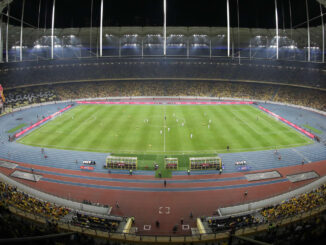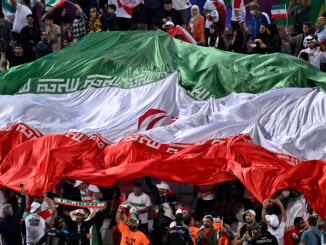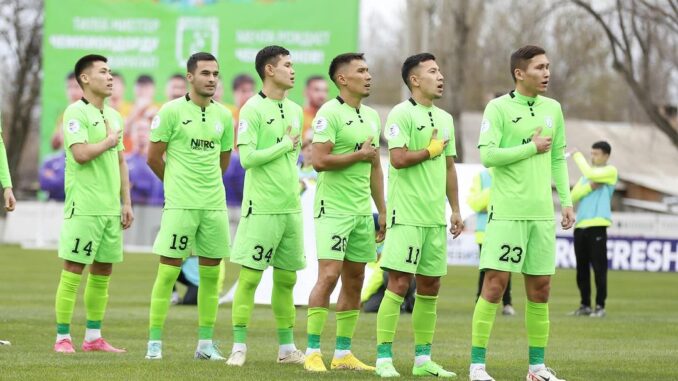
History will be made on Wednesday when Abdysh-Ata become the first club from Kyrgyzstan to make it to the latter stages of the AFC Cup, as they host Australia’s Central Coast Mariners in the final four of the competition.
While their opponents are more used to contesting at the very highest level of continental football, and will do once again next season, having last week secured their place in the inaugural AFC Champions League Elite competition, Abdysh-Ata enter tomorrow’s AFC Cup Inter-Zone Playoff Final in what is their debut campaign in Asia, at the peak of their club’s relatively brief history.
The club – known locally as the Freudian slip-provoking Green Kant – only established itself as a professional outfit at the turn of a century, in the regional district of Kant, 25km outside the nation’s capital, Bishkek.
Rising from a modest amateur setup, their new owners, the country’s largest brewery, who provided them with their distinctive moniker, stepped in to grow the club into one of the more established club sides in Kyrgyz football by the mid-2000s.
The club grew in kind with backing from its owner’s pocket. Abdysh-Ata, the company, monopolise the alcoholic beer market in Kyrgyzstan, and have a substantial hold on other non-alcoholic beverage markets, most notably the recent growth in energy drink sales.
It’s impossible to escape their marketing impact. Their Nitro energy drink brand is now plastered pretty much everywhere in Kyrgyz football, from the domestic league sidelines to national team press conferences.
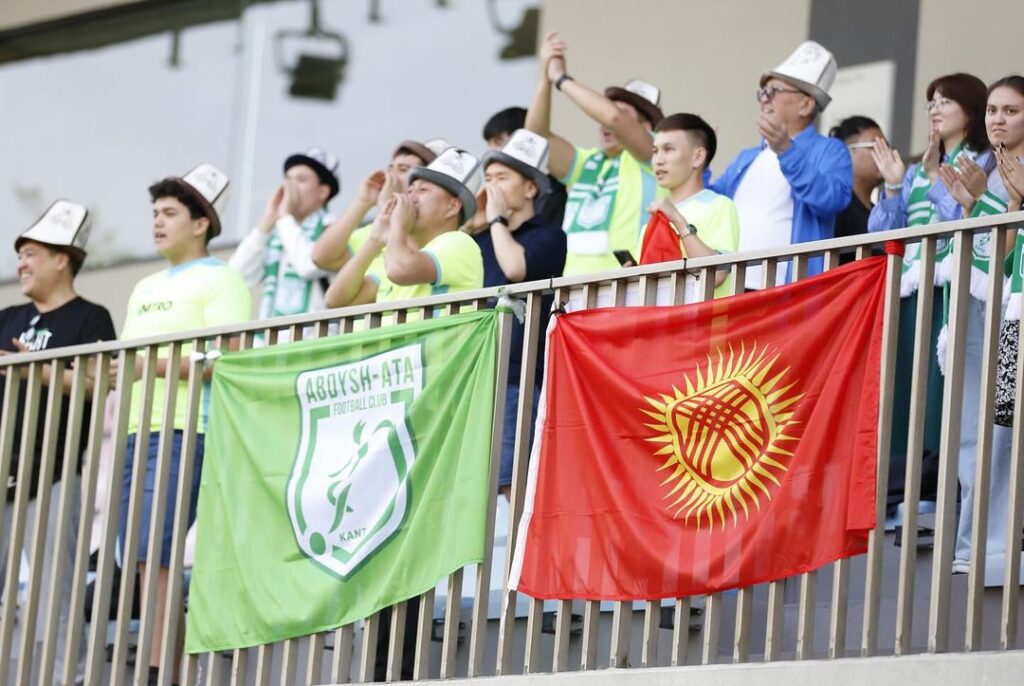
Based out of their small domestic home, predictably named the Nitro Arena, that features one small, antiquated stand nestled amongst thick woodland, the club cater for the local populous, with open access sports facilities and community building investment.
Somewhat in lockstep with their growing civic pride, the team have grown their presence at the top end of the domestic league, finishing in second place no less than seven times over the last two decades.
It was only in the last two years, however, where they finally broke their duck: clinching the Kyrgyz title for the first time in 2022, and retaining it in 2023, breaking the domination of Dordoi Bishkek, who had held on to top spot for the previous four years.
The changing of hands, from Dordoi to Abdysh-Ata, is as interesting in the changing of owners at the top, and in the shift in political power within Kyrgyz football, as it is in the passing of the baton on sporting merit.
Dordoi have been the prized asset of Kyrgyz football for the last 20 years, since their Soviet Union split in the early 1990s, in a Central Asian region that tends to gravitate to a one-club national dominance.
They were the first Kyrgyz club to take their domestic success abroad, having won the AFC President’s Cup in 2006 and 2007, and in making the final over the next three seasons, yet struggled to make an impact once the competition was absorbed into the AFC Cup in 2014.
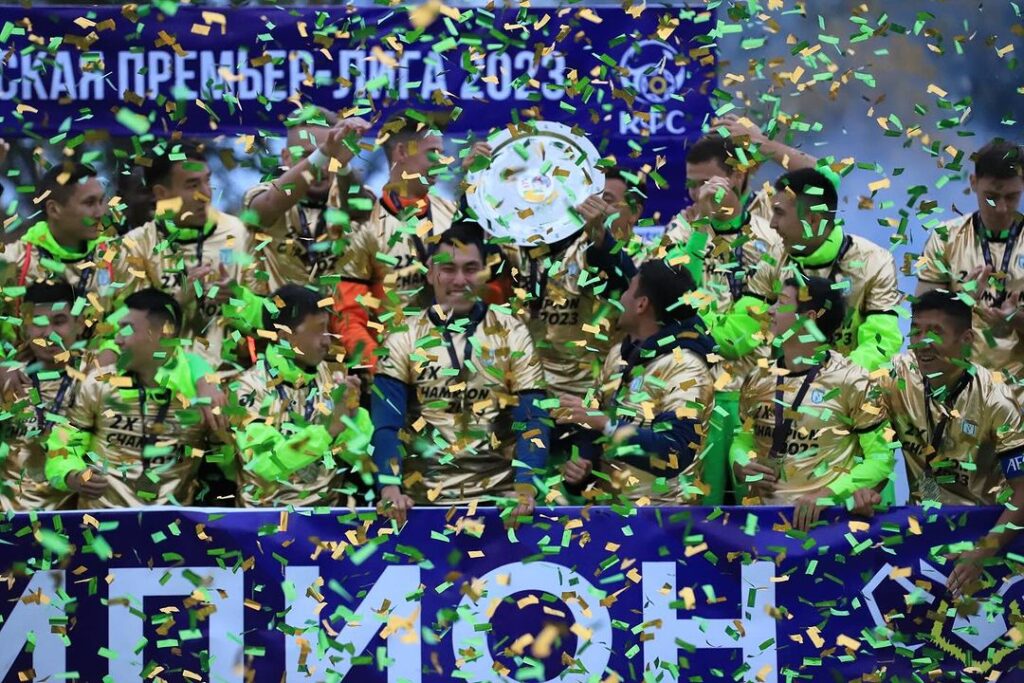
Dordoi’s backing comes from the regionally famous wholesale market, the Dordoi Bazaar, under the leadership of the company’s owner Askar Salimbekov. Alongside his son, Ulugbek, Salimbekov has been influential in both domestic Kyrgyz football, and within the Kyrgyz Football Union.
His domestic rivalry with Abdysh-Ata’s very own father-son owners Sovetbek and Azat Sakeboev, continues within the corridors of power until this day; with both generations commanding significant influence across all levels of the Kyrgyz game.
Shifts in power and monetary influence have seen Abydysh-Ata succeed under Sakeboev junior since his succession in 2012 transitioned the parent company towards modern times, with the football club at the sharp end of it’s delivery.
The club have been able to acquire the nation’s best footballing talent, tempting back the services of national team players Kayrat Zhyrgalbek uulu, Farkhat Musabekov and Ernist Batyrkanov from Europe, all of whom made their name during the heady days of Dordoi under former Kyrgyz national team coach, Aleksandr Krestinin.
While relying on established names, Abdysh-Ata have also been able to develop their own, bringing through the likes of centre back Khrystian Brauzman and striker Atay Dzhumashev over the last five years.
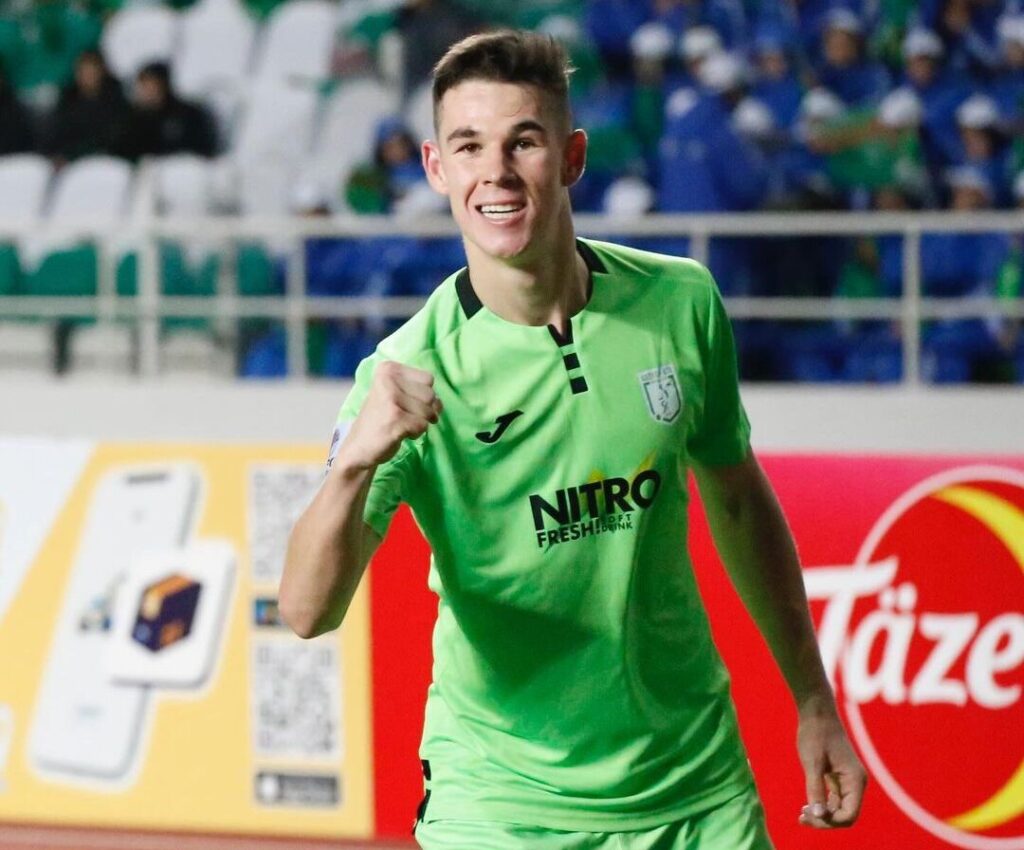
Twenty-year-old Brauzman, Kant born, of German descent, is regularly promoted as the future face of Kyrgyz football. His prominence in the back four for Abdysh-Ata, both in their title successes and now in their continental progression, alongside the national team, is seen as a pivotal driver in the development of the game at all levels across the country.
While their success at home is understandable given the personnel and resource they’ve been able to rely on over the last few years, their progress in the AFC Cup has been more unexpected.
Kyrgyz club sides have tended to struggle in the competition, exiting in the group phase in each occasion they’ve qualified since their initial inclusion a decade ago – amassing a total of three victories against non-Kyrgyz teams over that time. Abdysh-Ata, in their debut season, secured five wins from six, and topped their group at a canter, scoring 18 goals in the process.
While the back-to-back Kyrgyz champions clearly represent an improvement of domestic football, as demonstrated in the national team’s first (in 2019) and second (earlier this year) qualifications to the AFC Asian Cup, their success has been aided by expansion in the AFC Champions League which has promoted the leading lights of Uzbekistan, Tajikistan and Turkmenistan, who had tended to dominate the region in the AFC Cup.
Opportunity may have fallen in their lap, but Abdysh-Ata have obliged with unerring effectiveness. Ruthless in the group stage, their 8-1 two-legged dispatch of Taiwanese club Taichung Futuro in their Inter-Zone Playoff Semi-Final last month underlined their right to mix it in the latter stages.
The aforementioned Zhygalbek uulu, as proven in Qatar earlier this year, is a creatively dangerous option from out wide, while the threat of Batyrkanov, and former Turkmen international striker Suleyman Mukhadov, on the counter can prove a handful to any static defence.
But it will be through their set-plays where Abydysh-Ata will no doubt threaten Central Coast the most; with Brauzman and centre back partner Ayzar Akmatov providing a commanding aerial threat.
Under the unassuming reigns of Uzbek coach Islam Akhmedov, who took over ahead of their continental campaign, the team are well drilled and play the percentages, but have some individual talent in key positions to create an opening.
While Abdysh-Ata enter the clash with Central Coast, in what is effectively the AFC Cup semi-final, as significant underdogs, they do so with the momentum of two years of domestic dominance and a comfortable passage in the tournament behind them.
In front of their adopted home of the Dolen Omurzakov Stadium in Bishkek, where Kyrgyzstan once hosted the final of the AFC Presidents Cup, and clinched their very first Asian Cup qualification some six years ago, irrespective of the scoreline, Kyrgyz football history will be rewritten once again.
Will it be rewritten with a shock in favour of the local brewers turned national heroes? One can only wonder.
Photos: IG/fc_abdyshata
Listen to Episode 219 of The Asian Game Podcast as we discuss the AFC U23 Asian Cup and AFC Champions League semi-finals


